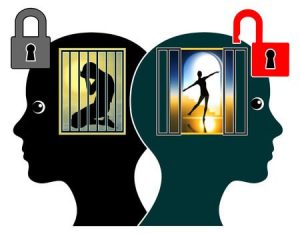REDUCE ANXIETY WITH HYPNOTHERAPY AND NLP
 Anxiety is a common affliction that affects millions of individuals worldwide, often hindering their quality of life. Traditional therapies have shown promise, but recent advancements in alternative treatments have gained attention. This article explores the effectiveness of a powerful combination: Hypnotherapy and Neurolinguistic Programming (NLP) in reducing anxiety.
Anxiety is a common affliction that affects millions of individuals worldwide, often hindering their quality of life. Traditional therapies have shown promise, but recent advancements in alternative treatments have gained attention. This article explores the effectiveness of a powerful combination: Hypnotherapy and Neurolinguistic Programming (NLP) in reducing anxiety.
Harnessing the Power of Hypnotherapy: Hypnotherapy, a therapeutic technique that utilizes hypnosis, has long been recognized for its potential in treating anxiety. By inducing a relaxed state and tapping into the subconscious mind, hypnotherapy aims to reframe negative thought patterns and instill positive suggestions. Through guided imagery and suggestion, hypnosis helps individuals address underlying anxieties, promoting a sense of calm and relaxation.
The Art of Neurolinguistic Programming: Neurolinguistic Programming (NLP) is a psychological approach that explores the relationship between language, behavior, and subjective experience. NLP techniques can be particularly effective in reducing anxiety by rewiring thought patterns and modifying habitual responses. By employing various strategies such as reframing, anchoring, and pattern interruption, NLP empowers individuals to change their internal representation of anxiety-inducing situations, leading to decreased anxiety levels.
The Synergy of Hypnotherapy and NLP: When combined, Hypnotherapy and NLP create a powerful synergy that enhances the effectiveness of anxiety reduction. Hypnotherapy allows individuals to enter a deep state of relaxation, where the mind becomes more receptive to NLP techniques. This heightened state of suggestibility facilitates the integration of new beliefs and behaviors that promote calmness and resilience in anxiety-provoking situations.
Scientific Evidence: Multiple scientific studies have demonstrated the efficacy of Hypnotherapy and NLP in reducing anxiety. A study published in the Journal of Clinical Psychology showed that individuals who received hypnosis treatment experienced a significant reduction in anxiety symptoms compared to those who did not. Another study published in the Journal of Anxiety Disorders found that NLP techniques effectively decreased anxiety levels in participants suffering from phobias.
Additionally, the Journal of Contemporary Psychotherapy in 2017 demonstrated that NLP interventions led to a significant reduction in anxiety levels among participants and the National Library of Medicine has a growing body of work confirming the effectiveness of NLP and Hypnotherapy in reducing anxiety in clients while the National Library of Medicine has a growing body of work confirming the effectiveness of NLP and Hypnotherapy in reducing anxiety in clients.
Personalized Approach and Long-term Benefits: One of the key strengths of Hypnotherapy and NLP is their personalized approach. These therapies take into account an individual’s unique experiences, beliefs, and thought patterns, tailoring the treatment to their specific needs. By addressing the root causes of anxiety, this approach offers long-term benefits and equips individuals with effective coping strategies that can be utilized even after the therapy concludes.
While anxiety can be debilitating,the combination of Hypnotherapy and Neurolinguistic Programming provides a powerful solution for reducing its impact. With their ability to tap into the subconscious mind, reframe negative thought patterns, and modify habitual responses, these therapies offer individuals relief from anxiety and empower them to lead a more fulfilling life. As further research continues to shed light on their effectiveness, Hypnotherapy and NLP hold promise as valuable tools in the battle against anxiety.
To start your journey toward reducing your anxiety, you can call us for a free phone consultation or you can schedule a session by clicking here.
